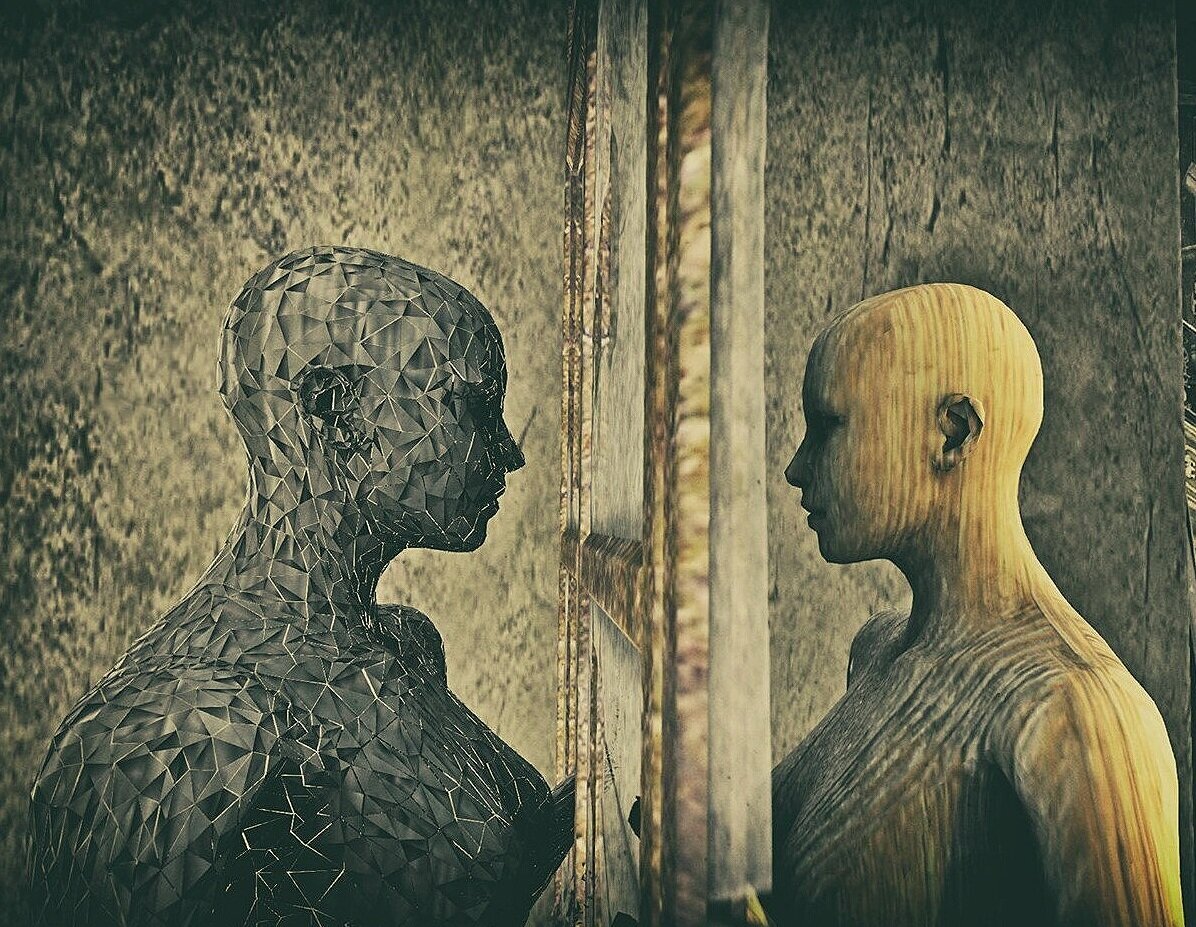Focus on the person, not the problem
Calvin Harris, mentor, life coach and blogger - I help people through listening and questions to reach for meaningful personal growth.
As a mentor and life coach, I still struggle with one of the most important skills in any relationship - the ability to be a good listener.
It is no joke, the idea of being a good listener is vital, and yet, most of us are terrible at it. Like exercising regularly, or having a healthy diet, we all know it’s good for us, but we struggle all the same.
Thankfully, over the years, I have become a better listener through conscious awareness and a willingness to practice skills to improve. Here are some tips I want to pass along that you may find useful. It is important to determine why someone has come to you and then set your course of action. Surprisingly, it may be that someone thinks you are a good listener, and if that is the case, it becomes more important to be that good listener. Practice these steps and see how you can dramatically improve the quality of your relationships.
1. Don’t be the problem solver - Focus on the person.
I, like a lot of people, are problem-solvers at heart. It’s in our DNA, that strong biological survival instinct that pushes us to identify and solve problems with the strong cultural bias to value individual achievement and analytical prowess, and it’s not surprising that I am constantly finding problems and trying desperately to solve them.
And it is this precise trait that is wrong when people seek you out, not as a mentor, not as a coach, but as a friend. This is when they simply want to be heard, understood, and feel connected, while problem-solving and advice-giving gets in the way.
I suggest focus on the person, and not on their problem, to be a better listener.
Someone comes to you and says I need to talk, they may be angry, scared, in low spirits, or otherwise upset; the last thing they want is to get unsolicited advice— making them feel like a burden or problem.
There is a time and a place for giving advice, and the key to that is - when someone asks for it! Until then, hold off and focus on just being present.
2. The Art of open-ended questions
Asking questions is about getting answers. In asking the right question, the more useful the answer will be. The Art form of listening is missed when the question asked is more succinct and brief, which means, most questions asked do not get to the core of the matter, but only encourage the other person to give short, closed in answers like Yes or No. How you ask questions matters, because in fact they are conversations.
Conversations are about more than information exchange. They’re about connection.
When a friend, spouse or family member is upset, and says “they just want to talk”, then the art of being a good listener isn’t primarily about extracting the facts of what made them upset or what their plan for moving on is. Instead, the goal is usually to be supportive, to empathize, to offer encouragement, and to help them to feel like you’ve got their back and that they’re not alone.
The key is open-ended questions to communicate that you’re interested and that you care about them. Closed questions communicate that you care about information.
Instead of: Why are you upset? Try: How are you feeling?
Instead of: Was work stressful again? Try: How was work?
Instead of: Did your Boss criticize you?
Try: What happened in the conversation with your Boss?
When in doubt, here are a few generic open-ended questions that work well in almost any scenario:
· How are you feeling right now?
· Can you tell me more about that?
What was that like for you?
How did you feel about that?
What was going through your mind?
Being a good listener is about the person sitting next to you, not information.
Light bulb moment for me: When I stopped beginning a question with Why and started using What or How instead. I found Why questions tended to make people feel like they were being questioned and/or judged whereas How and What felt more feeling based and unbiased.
3. Echoing back what you’re hearing
When I first began my training to become a mentor, I remember having to do an exercise of reflective listening or echoing back, which is a communication strategy where you first seek to understand a speaker's idea, then speak back the idea to the speaker, to confirm the idea has been understood correctly. My thinking at the time was that it was the hardest thing to do, and what was the point… Fast-forward to now, and I think it may very well be one of the most valued tools I have.
Reflective listening means repeating back (often in your own words) what the person across from you has said. For example:
Statement: I couldn’t believe Roger said that to me! In my head I was like “Who the hell do you think you are?” And then to make it worse, no one else even said anything in my defense!
Echo response: It sounds you were caught off guard.
Statement: I was just so angry, upset and disappointed. I had a million things running through my mind and I just didn’t know where to start or how to move forward.
Echo response: It seems like you were really overwhelmed.
Statement: Are you listening to me? You’re always so caught up in your own stuff that you never really hear what I’m telling you.
Echo response: It sounds like you’re saying I don’t listen very well.
Now, when I first started doing this, it felt fake to me and almost condescending — I felt they must think me silly repeating back to them their feeling that they know perfectly well how they feel… why do that?
The answer - It is not about information, it’s about feeling understood and connected.
When we are echoing back what another person is telling us, it makes people feel listened to and heard. And when people feel genuinely heard, all sorts of positive change happens, no matter how bad the situation is.
4. Emotions are validated
Echoing back what someone says builds trust and confidence that you understand and acknowledge how someone feels emotionally, and that sends an even more powerful message that we understand them on a deep level and are with them.
A few examples using the same statements from above:
Statement: I couldn’t believe Roger said that to me! In my head I was like “Who the hell do you think you are?” And then to make it worse, no one else even said anything in my defense!
Echo response: It sounds like you were really angry and disappointed in Roger and your coworkers.
Statement: I was just so angry, upset and disappointed. I had a million things running through my mind and I just didn’t know where to start or how to move forward.
Echo response: I can see how that’d make you feel really disappointed and angry.
Statement: Are you listening to me? You’re always so caught up in your own stuff that you never really hear what I’m telling you.
Echo response: Yeah, I can see why you’re pretty angry with me for not listening better.
Emotional validation can be the first steps to begin pure wizardry. Listening primes the pump, beginning with the person across from us recognizing we’re upset and acknowledging the specifics of our distress. This is not in a problem-solving or intellectual way; but in a plain, straightforward I-can-see-how-you-feel way.
From birth, we have been taught or trained not to be negative, and thus to see our own “negative” emotions as bad, something to be eliminated or fixed. This creates deep anxiety and guilt in all of us.
But by having these emotions validated by another person, just by simply naming it and acknowledging that we understand it, we give someone an incredible gift: the right to feel whatever it is they feel without shame or fear. And then to go beyond that to even deeper understandings if they choose.
There isn’t a single relationship in your life — big or small — that won’t improve dramatically if you can get in the habit of validating other people’s emotions.
5. Validate your own emotions
Let’s step back for a second and realize that Nothing sabotages your ability to be a good listener faster than defensiveness.
Defensiveness is what people do when they feel threatened
For example, your spouse makes a seemingly sarcastic comment about your new tie on the way out to a dinner party…You feel disrespected, disparaged, and hurt, all the while your anger is increasing, so you jab back with a comment about how he or she is always so negative and critical.
In response, your spouse feels attacked and angry, thus clams up, leading to a very awkward and silently chilly dinner with friends or work associates.
We are wired within our psyche, like all animals, when feeling attacked, to either want to fight back or run away — this could be physical, but more often, its mental. This defensiveness could initially be set off by fear, yet it can quickly morph into any other form of difficult emotions, like anger, resentment, guilt, shame, etc.
Your defense system, with all the heated emotion it can generate, is important if you’re literally under attack (like being chased by a tiger) but that system is pretty useless when you merely feel attacked.
In difficult conversations, we find arguments escalate to fights, this the result of someone getting defensive and ending up saying or doing something hurtful as a result of their defensiveness — at which point, the original issue is gone and it has moved on to past deeds of being slighted, wronged and resentments.
The best way to avoid defensiveness in a difficult situation, and so that you can continue to listen well even when you’re upset, is to practice validating your own emotions:
After a sarcastic comment from your spouse… Acknowledge the fear and anxiety you feel welling up in you about the comment, and about your decision to bring up this topic. Say to yourself your feelings are normal and okay but that you still get to decide how to act going forward.
Another scenario could be at work, where your boss does an unfavorable critique on your job performance … Acknowledge to yourself that you’re angry and hurt. Remind yourself that’s it’s perfectly understandable that you feel that way. Consciously moving forward in the conversation with this knowledge keeps the conversation on point.
If you don’t validate your emotions, they’ll end up getting the best of you. And, it’s difficult to listen well when we’re consumed by painful emotion.
To Recap
Practice, Practice, Practice - training yourself to be a better listener will dramatically improve the quality of your relationships.
The following elements can be Grist for your Mill:
· Stop giving advice.
· Ask open-ended questions.
· Reflect back what you’re hearing.
· Validate their emotions.
· Validate your own emotions.
In closing I am wishing you "Akahai," through your continual efforts in healthy relationships. The Hawaiian word "Akahai," meaning kindness, to be expressed with tenderness through your good listening skill both for yourself and others.
Aloha
Calvin








